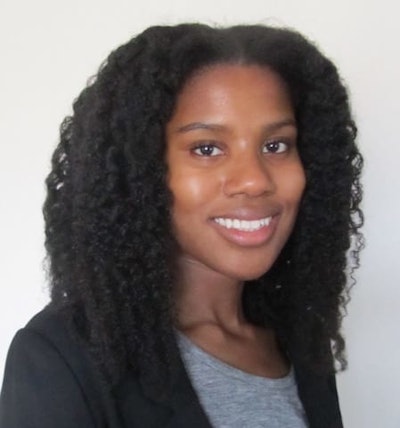 Belma Moriera faces $24,000 in student debt.
Belma Moriera faces $24,000 in student debt.
“My belief has always been, work hard, and teach my kids what you can get if you work hard and are responsible,” said Moriera. “But this system is not built for me, or my children, as a Black woman.”
Instead of living the American dream after graduation, Moriera is now one of the millions struggling with student loan debt. By the time of her graduation, Moriera had attended three for-profit institutions, including ITT Technical Institute. While the Biden-Harris administration announced $1.1 billion in debt relief to 115,000 borrowers who attended ITT Tech, Moriera still owes $24,000 in debt, just a fraction of the nationwide student debt total of $1.6 trillion.
Moriera shared her story on Wednesday at a webinar hosted by The Education Trust, a national nonprofit that works to close opportunity gaps that disproportionately affect students of color and students from low-income families. Ed Trust was joined by the National Alliance on Mental Illness (NAMI) and Black Girls Vote and Higher Heights for America PAC, two groups working for the political interests of Black women.
 Victoria Jackson, assistant director of higher education policy at Ed Trust and lead researcher on Ed Trust’s Black student debt reports.
Victoria Jackson, assistant director of higher education policy at Ed Trust and lead researcher on Ed Trust’s Black student debt reports.
Because state funding for higher education has seen a dramatic decrease in the last two decades, and inflation has decreased the purchasing power of the Pell Grant, Ed Trust has found that Black women owe an average of $38,000 in student loans after earning a bachelor’s degree and over $52,000 for earning a graduate degree.
“Black women borrow the most,” said Victoria Jackson, assistant director of higher education policy at Ed Trust and lead researcher on Ed Trust’s Black student debt reports. “They shoulder the greatest burden from the high cost of college.”
According to Ed Trust, 12 years after starting college, Black women owe 113% of their student loans, while every other racial group is able to pay off some portion of what they owe.
“We have fewer resources because of racism and sexism—gender and wealth pay gaps are well documented,” said Jackson. “When you think about the stress caused by not seeing any decline on your balance, how demoralizing that can be, it creates financial stress and has ripple effects. Research shows debt in general can harm mental health.”
Erma Sinclair, a grant writer with NAMI, said that the pandemic has only exacerbated the mental health concerns.
“One in five folks now say they’re experiencing a mental health challenge in this pandemic—and we know those numbers are vastly overrepresented in communities of color, but also vastly under-reported,” said Sinclair. “There is an intersectional trauma experienced by Black communities. We try to encourage folks to find community where you can have honest conversations that really express your experience. A part of coping is being able to feel affirmed in your experience.”
Communication is not only key to managing the mental weight of student loans but is also necessary for building the momentum that can successfully advocate for student debt relief, said Lakeila R. Stemmons, national director of Higher Heights.
“We have to look at what coalition building means, what power means, and how we can collectively use our power as a coalition to advocate,” said Stemmons. “I urge everyone, find a legacy organization with the resources, talent, and institution foundation to partner with to get work done—we can’t do this by ourselves. There is space for us all to thrive and be leaders in our communities, but we have to do it together.”
Dr. Shamell Bell, lecturer at Dartmouth College and Harvard University, agreed.
“We need to tell our stories,” said Bell. “Our connection, our story, our united front—that’s our power. Sharing stories releases the shame, guilt, and brings us to acceptance, not of the situation, but that education is free, and we have the ability to make sure we cancel debt, not forgive it.”
Once education is seen as an inherent right, Bell said, it will be easier to reverse the corporatization of institutions of higher learning.
“There’s a systemic failure that needs to be pointed out—there isn’t a mistake of mishap, these are actual policies that disadvantage Black women and others—if education isn’t seen as a right, we fail to realize this is intentional,” said Bell.
Despite the hurdles she has faced and the remaining debt she must still continue to calculate into her everyday life, Moriera said she is returning to school, this time pursuing a degree in social work to help others.
“I’m 36, I have four kids—I still have dreams because I can’t give up. No system, no loans, no discrimination is going to stop me,” said Moriera. “I’ll continue to teach that to my children.”
Liann Herder can be reached at [email protected].

















